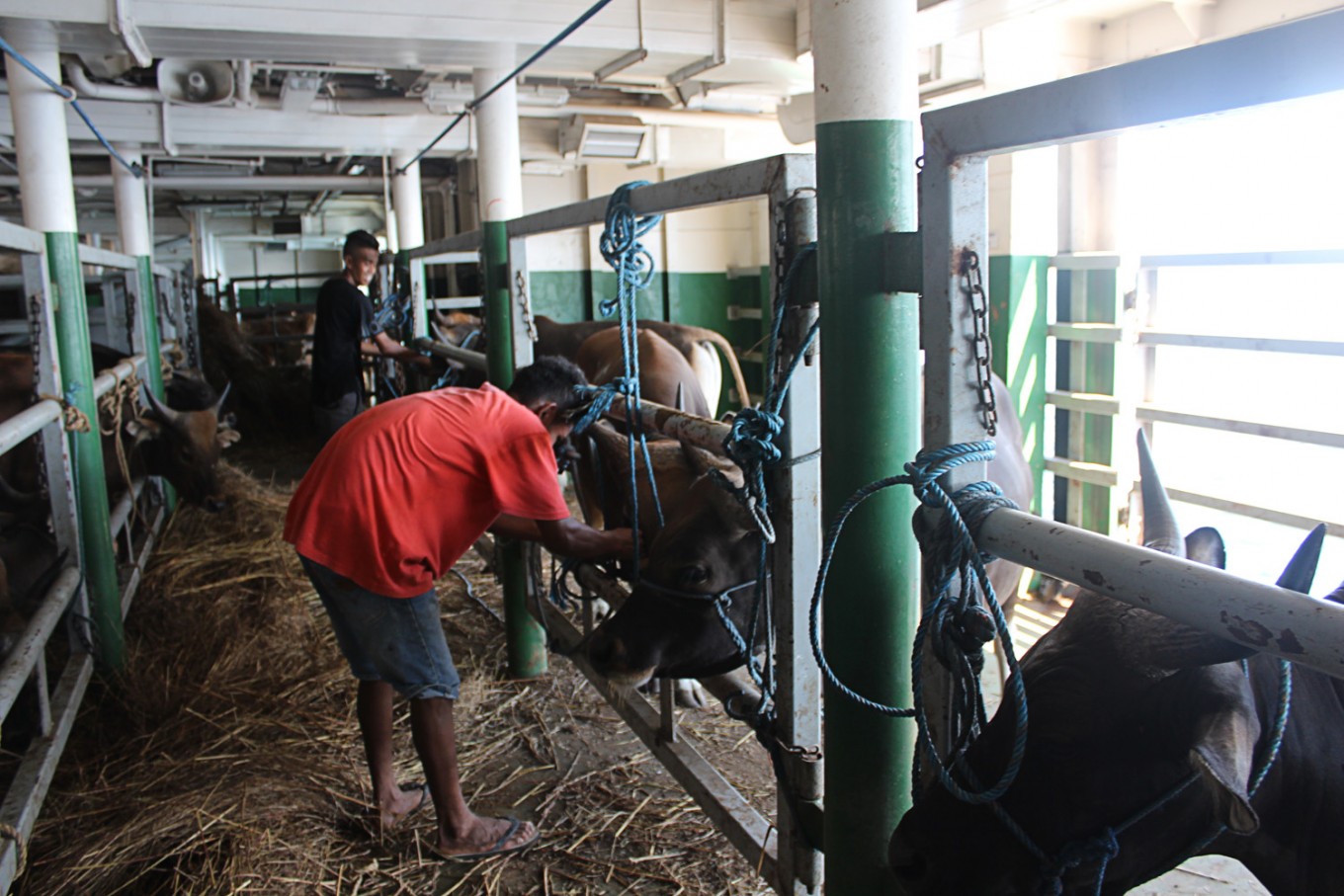Popular Reads
Top Results
Can't find what you're looking for?
View all search resultsPopular Reads
Top Results
Can't find what you're looking for?
View all search resultsGovernment to protect cows from early slaughter next year
Change text size
Gift Premium Articles
to Anyone
P
rotection of cows will be part of the duties of the police and the military as the government is looking to prevent female cows from early slaughter and to mass inseminate them to increase their population in order to reach the “cattle import free” goal by 2025.
To reduce imports and to be able to export, Indonesia should have at least 42 million cows, according to the Agriculture Ministry.
However, the early slaughter of productive cows, aged two to eight years old, caused the cow population to drop to only 12.3 million in 2013 from 14.8 million in 2011, data from the Central Statistics Agency (BPS) show.
The practice is rampant across the country, even though article 86 of Law No. 41/2014 on cattle and animal health forbids it and carries a sentence of three years’ imprisonment and a fine of up to Rp 300 million (US$22,471).
“Small farmers often slay their cows early when they have an urgent need [for money],” Agriculture Ministry livestock and animal health director general I Ketut Diarmita said in a telephone interview on Friday.
To tackle the problem, the ministry is planning to cooperate with the police and military to prevent early slaughter. “We’ve been talking to them to create a monitoring system,” Ketut said, adding that the monitoring would likely begin next year.
The ministry might also buy the small farmers’ cows and place them in a state-run balai ternak (livestock hall) spread across seven provinces.
However, it has limited funds to buy the cows, especially after its 2017 budget was reduced to Rp 23.9 trillion from Rp 27.6 trillion in 2016.
Part of the budget, Rp 1.1 trillion, will be used to inseminate 4 million cows and heifers starting January.
As many as eight million doses of frozen semen and liquefied nitrogen will be distributed to 7,000 private and state inseminators across the country.
Small farmers can obtain the insemination package from state inseminators for free, while big farmers will need to pay a certain amount for the package from private inseminators.
The success rate of the new breeding program — called “UPSUS SIWAB” or the “mandatory breeding program” — is estimated to reach 75 percent, which would result in three million pregnant cows.
The ministry will evaluate the results in 2018, the year the calves are expected to have been born.
Indonesia has been dependent on imports to fulfill the population demand for beef, setting an import quota of cattle at 600,000 this year and an expected 700,000 next year, mostly from Australia.
Meanwhile, the ministry claims to have started planting 13 hectares of grass and legume and will build water reservoir regions, as well as provide vaccines, to guarantee the health of the cows.
“Nutrition should be ensured as 30 percent of the population has reproduction problems, 60 percent of which comes from malnutrition,” Ketut said.
To help increase the population number, owners of feedlots are also required to import one breeder cow for every five imported cattle, while cooperatives must do the same for every 10 imported cattle, as stipulated by ministry regulation No. 49/2016 on cattle imports.
Separately, Cow and Buffalo Breeders Association (PPSKI) chairman Teguh Boediyana said approximately one million productive cows are slaughtered every year.
He urged the government to monitor the practice on the field so that the breeding program would not end in vain.










